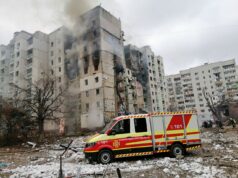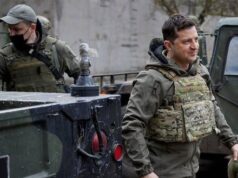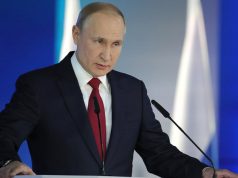BEIJING, Sept 13- More countries are responding positively to a Russian initiative to put Syria’s chemical weapon stockpiles under international control to avert a possible US strike on the Arab country, China’s Xinhua news agency reported.
“Iraq welcomes the Russian initiative that calls on the Syrian government to hand over their stockpiles of chemical weapons for international supervision and control as an international measure of disarmament,” an Iraqi Foreign Ministry statement said Wednesday.


Iran’s supreme leader Ayatollah Ali Khamenei expressed hope on Wednesday that the United States is “serious” in its new approach toward Syria, semi-official ISNA news agency reported.
Turkish President Abdullah Gul welcomed the proposal to put Damascus’ chemical stockpiles under international control, but warned the move should not be “a tactical move,” Turkish Daily News reported Wednesday.
In a statement issued on Tuesday, Belarus also voiced support to the initiative, hoping that it will enable the United States to forgo any military intervention not sanctioned by the United Nations and allow for avoiding more victims among Syrian citizens.
Belarus welcomes any international efforts aimed at preventing new conflict in the Middle East from happening amid the recent US threats to launch a missile attack on the governmental and military targets in Syria, the statement said.
It stresses that the internal conflict in Syria could be solved through negotiations only and calls on the United Nations and all the states concerned to contribute to the peaceful settlement without the use of military force, said the statement.
Canadian Foreign Minister John Baird said on Tuesday that the country supports a political solution to Syria’s conflicts and destruction of its chemical weapons.
“As we’ve said from the beginning, the only way to halt the bloodshed in Syria is through a political solution,” said Baird in a statement.
Meanwhile, Baird noted that Canada supported efforts being undertaken by the United States and other countries to reinforce the prohibition of the use of chemical weapons.
The Russian proposal, unveiled on Monday, calls for securing the chemical weapon stockpiles of the Syrian government under international observation, apparently in an attempt to cool down the tension and to hold back a looming US military action against Syria.
The Russian State Duma, the lower house of the parliament, issued a statement on Wednesday, calling for the international community to avert a military strike against Syria, warning that a strike would jeopardise stability in the region.
Attacking Syria would destroy nuclear and chemical security in the region, result in more civilian casualties and lead to a humanitarian disaster in that country, it said.
In the statement, Russian lawmakers noted that military operation would be qualified as a gross violation of international law and thus a crime.
Representatives from the five permanent members of the United Nations Security Council met Wednesday to discuss Syria’s chemical weapons crisis, but no deal was reached, diplomatic sources said.
Analysts said the talks will leave space for a meeting between U.S. Secretary of State John Kerry and Russian Foreign Minister Sergei Lavrov in Geneva, Switzerland, on Thursday and Friday,
Kerry will meet Lavrov in Geneva, Switzerland, on Thursday and Friday, to discuss Syria’s chemical weapons, the US State Department said Wednesday.
hey will discuss matters concerning Syria, including “the use of chemical weapons and steps to address these developments,” the State Department said in a press release.
The meeting was announced by President Barack Obama during a prime time address to the nation Tuesday evening, in which he “welcomed” the Russian proposal.
State Department spokesperson Jen Psaki said a team of experts on weapons will accompany Kerry to Geneva to the meeting.
“We will also be bringing a team of experts to meet with their team of experts,” she told reporters, adding the US and Russian side would “figure out how to make the (chemical weapons) destruction effort logistically and technically possible.”
Psaki said the Russian proposal is far from complete, as Moscow had “put forward ideas” rather than a “lengthy package,” and there are “components that need to be worked out.”
“Our goal here is to test the seriousness of this proposal, to talk about the specifics of how this would get done, what are the mechanics of identifying, verifying, securing and ultimately destroying the chemical weapons,” said Psaki.
– BERNAMA










